Fruit Juice Manufacturing
Fruit Juice Industry
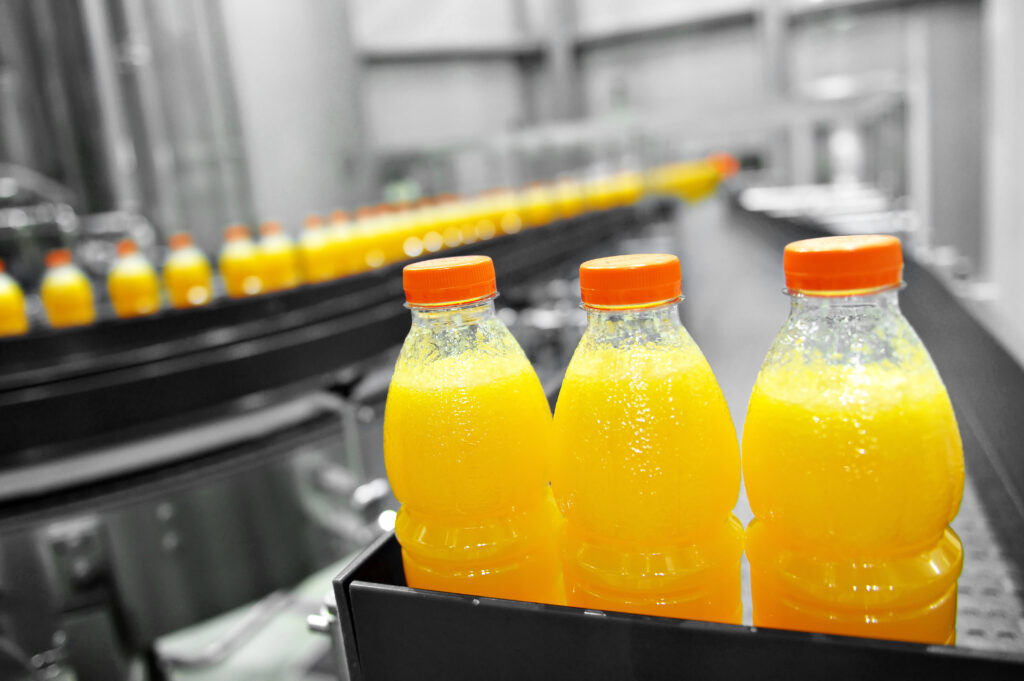
Anti-Foaming Agents (Polydimethylsiloxane (PDMS))
- Foaming is an undesirable side effect of certain industrial processes which reduces processing and storage capacity, decreases operating efficiencies, and creates problems with product quality and performance.
- To effectively control foaming, it is necessary to use a Defoamer to chemically break the films of liquid which surround the bubbles of gas released in processing, or to use an Anti-Foaming Agent to prevent the foam films from forming in the first place.
- Polydimethylsiloxane or PDMS is a Silicone-based foam control additive and is a cost-effective and efficient option for preventing and controlling foam.
- Due to low surface tension Silicones spread evenly and rapidly over a foam film, facilitating penetration and collapse of the foam.
- They also possess the advantage of being non-contaminating, since they are inert and are typically effective at much lower concentrations than non-silicone defoamers.
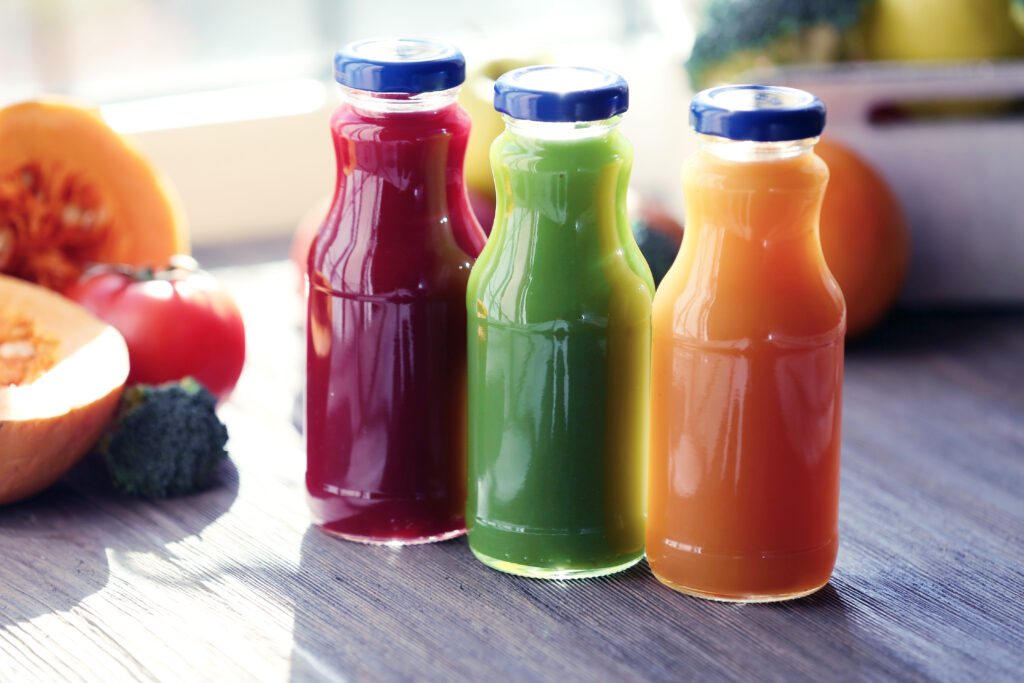
Stabilisers (Guar Gum, Carrageenan)
- Stabilizers such as Guar Gum and Carrageenan add viscosity to enhance flavour and give body to a beverage product.
- They also maintain emulsification, which prevents sedimentation by keeping additional ingredients, such as vitamins, herbs, and proteins, suspended in the beverage product.
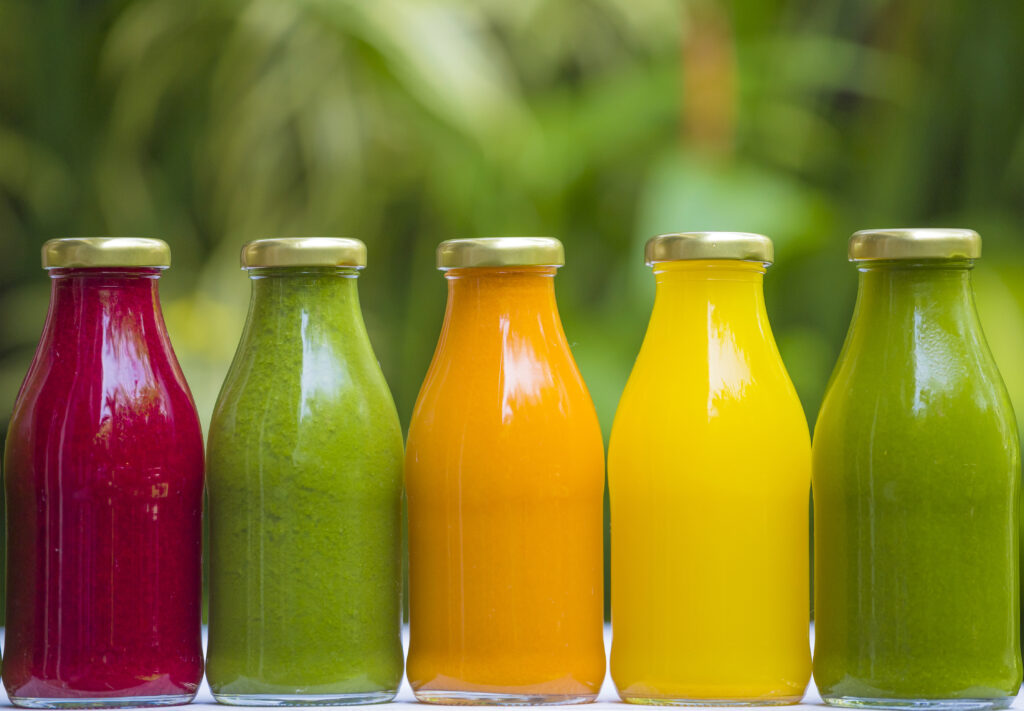
Thickeners (Pectin, Sodium Carboxymethyl Cellulose)
- Thickening agents, or thickeners, such as Pectin and Sodium Carboxymethyl Cellulose, are hydrocolloids that increase the viscosity of a solution or mixture without significantly affecting its other properties, such as taste.
- Hydrocolloids are a heterogeneous group of long-chain polymers that, when dispersed in water, produce a thickening or viscous and gelling effect.
- The thickening effect produced by hydrocolloids depends on several factors, including the pH and temperature of the food product as well as the hydrocolloid type and concentration.
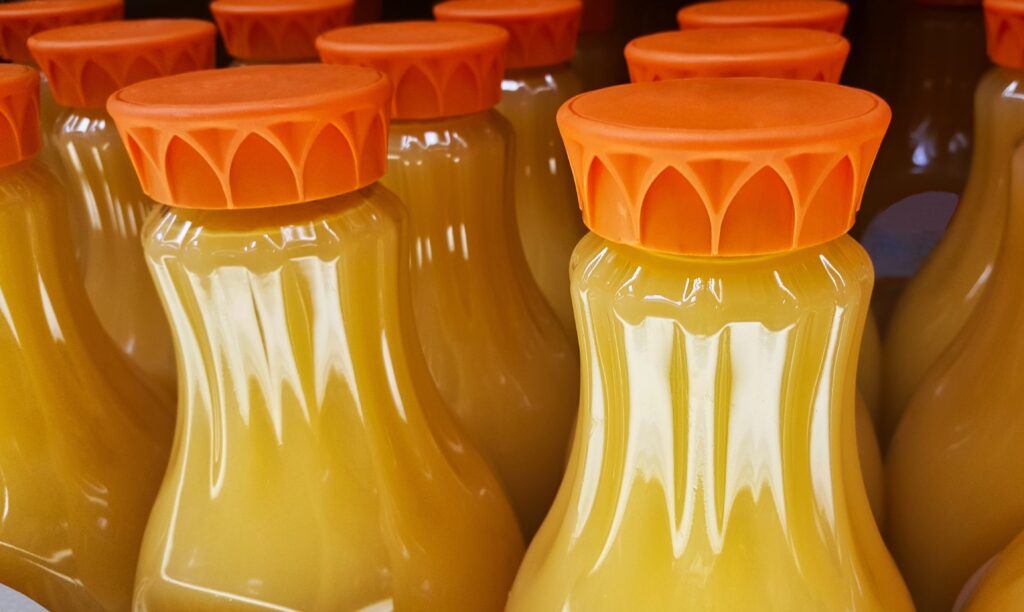
Preservatives (Citric Acid, Sorbic Acid, Sodium Benzoate, Potassium Sorbate, Salicylic Acid)
- Preservatives such as Citric Acid, Sorbic Acid, Sodium Benzoate, Potassium Sorbate, Salicylic Acid are used in juices and other beverages to prevent the growth of harmful bacteria and mold during the formulation/ manufacturing process, shipment, storage, or consumer use.
- They kill mould spores and bacteria, yeast and also inhibit enzymes. They also act as an antioxidant and bleaching agent.
- Thus, they help in the retention of ascorbic acid, carotene, and other oxidisable compounds and they also retard the non-enzymatic browning or discoloration of the juice or beverage.
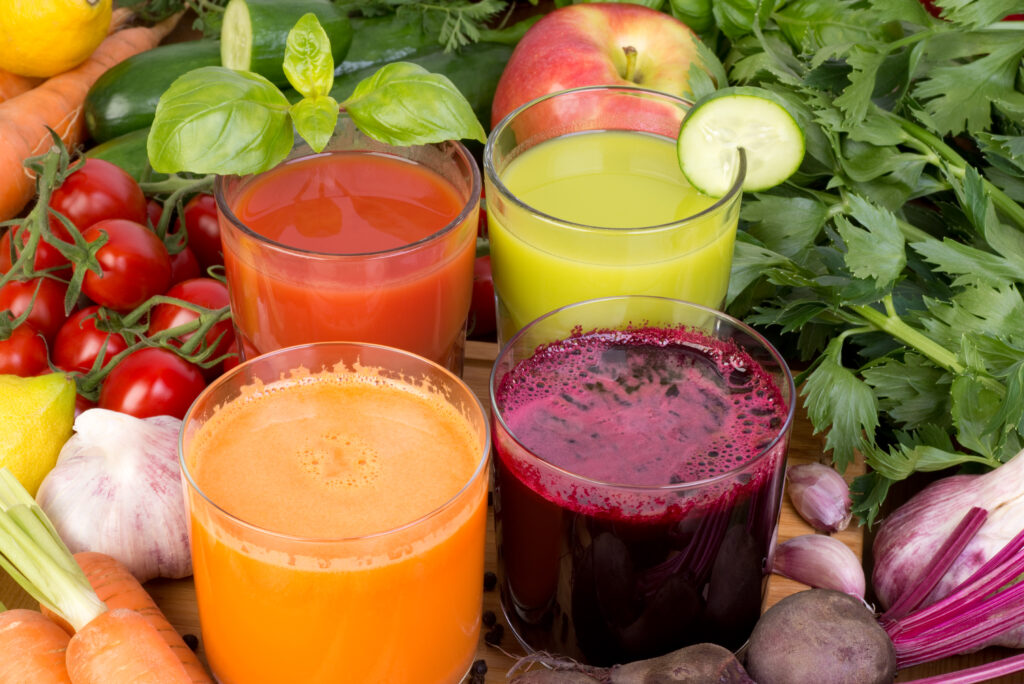
Antioxidants (Ascorbic Acid)
- During juice production, cut fruit is exposed to oxygen in the air which starts the process of oxidation, causing browning to the fruit which impacts the colour and look of the final product.
- The use of antioxidants such as Ascorbic Acid slows down the oxidation process due to its low PH. Thus, Ascorbic Acid can prevent browning as well as reduce the risk of mould and other microbial growth.
- Further, fruits are crushed, strained, pulped, and filtered during the juice manufacturing process. This intense process destroys a lot of the naturally occurring vitamin C found within the fruits. So Ascorbic Acid is added in the process as a natural additive to renew and improve the overall nutritional value of the beverage without impacting the taste.
